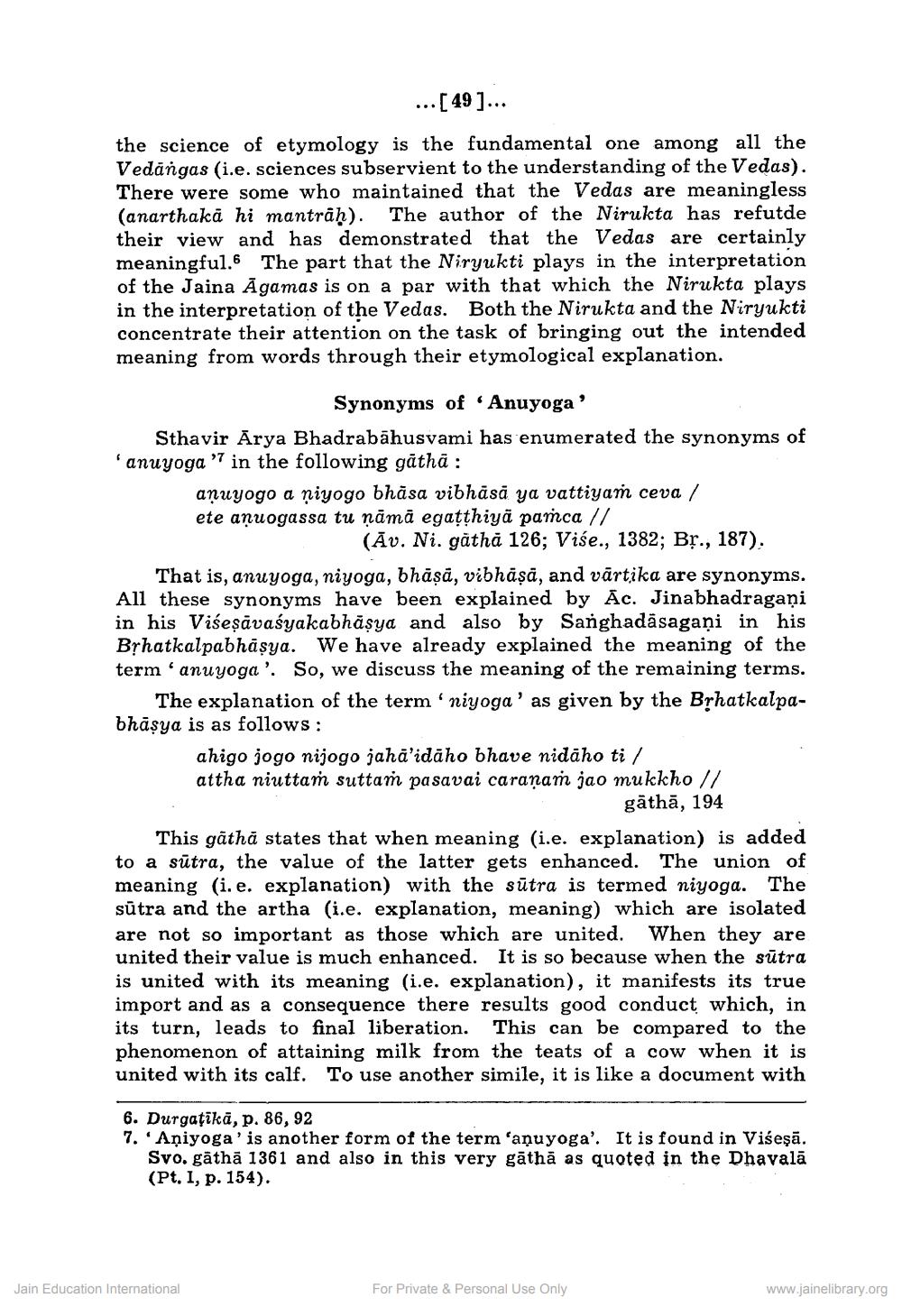________________
... [49]...
the science of etymology is the fundamental one among all the Vedāngas (i.e. sciences subservient to the understanding of the Vedas). There were some who maintained that the Vedas are meaningless (anarthaka hi mantrāḥ). The author of the Nirukta has refutde their view and has demonstrated that the Vedas are certainly meaningful. The part that the Niryukti plays in the interpretation of the Jaina Agamas is on a par with that which the Nirukta plays in the interpretation of the Vedas. Both the Nirukta and the Niryukti concentrate their attention on the task of bringing out the intended meaning from words through their etymological explanation.
6
Synonyms of 'Anuyoga'
Sthavir Arya Bhadrabahusvami has enumerated the synonyms of anuyoga "7 in the following gāthā:
anuyogo a niyogo bhasa vibhāsā ya vattiyam ceva / ete anuogassa tu nāmā egaṭṭhiya pamca //
(Av. Ni. gatha 126; Vise., 1382; Br., 187).
That is, anuyoga, niyoga, bhāṣā, vibhāṣā, and vārtika are synonyms. All these synonyms have been explained by Ac. Jinabhadragani in his Viseṣāvaśyakabhāṣya and also by Sanghadasagani in his Bṛhatkalpabhäṣya. We have already explained the meaning of the termanuyoga'. So, we discuss the meaning of the remaining terms.
The explanation of the term 'niyoga' as given by the Bṛhatkalpabhāṣya is as follows:
Jain Education International
ahigo jogo nijogo jaha'idaho bhave nidaho ti /
attha niuttam suttam pasavai caranam jao mukkho //
gāthā, 194
This gāthā states that when meaning (i.e. explanation) is added to a sutra, the value of the latter gets enhanced. The union of meaning (i.e. explanation) with the sutra is termed niyoga. The sūtra and the artha (i.e. explanation, meaning) which are isolated are not so important as those which are united. When they are united their value is much enhanced. It is so because when the sutra is united with its meaning (i.e. explanation), it manifests its true import and as a consequence there results good conduct which, in its turn, leads to final liberation. This can be compared to the phenomenon of attaining milk from the teats of a cow when it is united with its calf. To use another simile, it is like a document with
6. Durgaṭikā, p. 86, 92
7. Aniyoga' is another form of the term 'anuyoga'. It is found in Viseşă. Svo. gāthā 1361 and also in this very gāthā as quoted in the Dhavalā (Pt. I, p. 154).
For Private & Personal Use Only
www.jainelibrary.org




